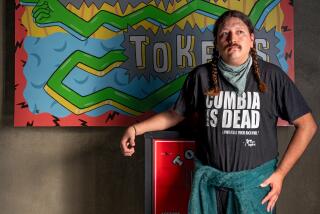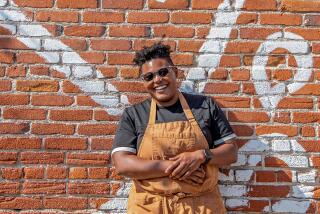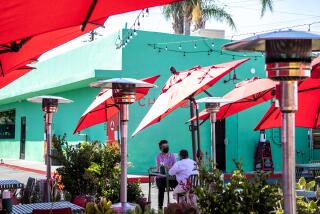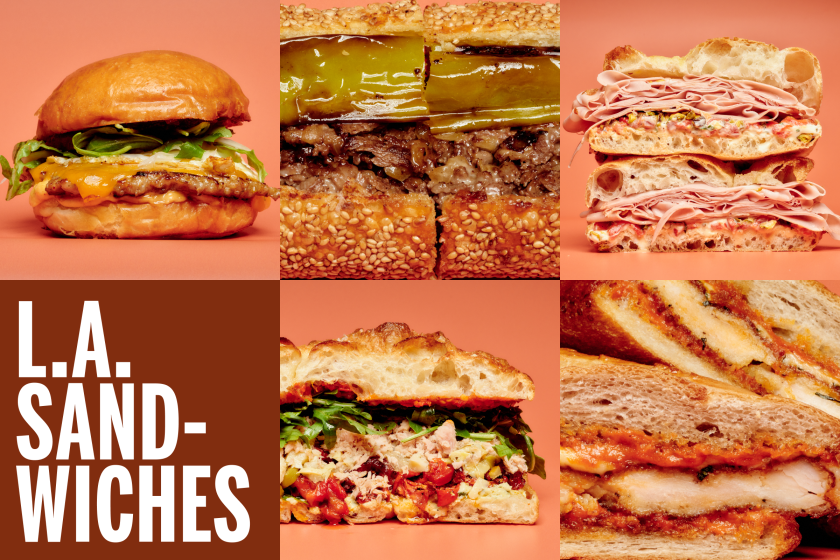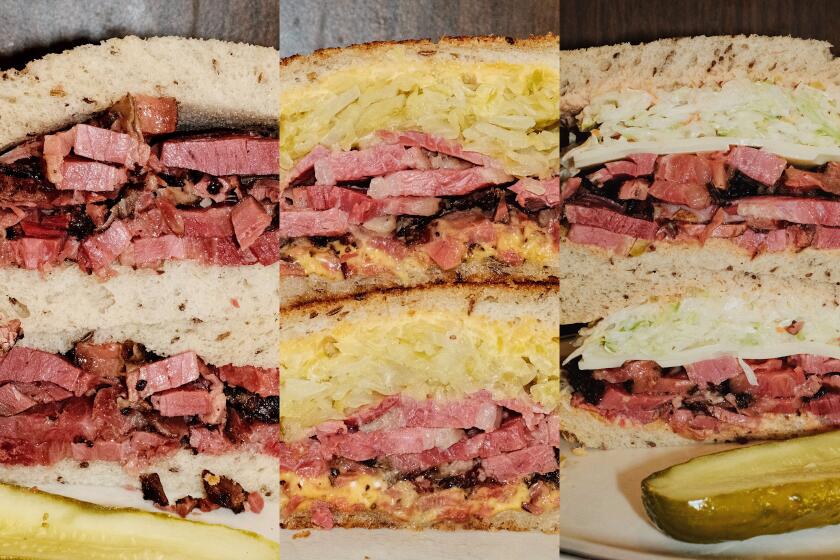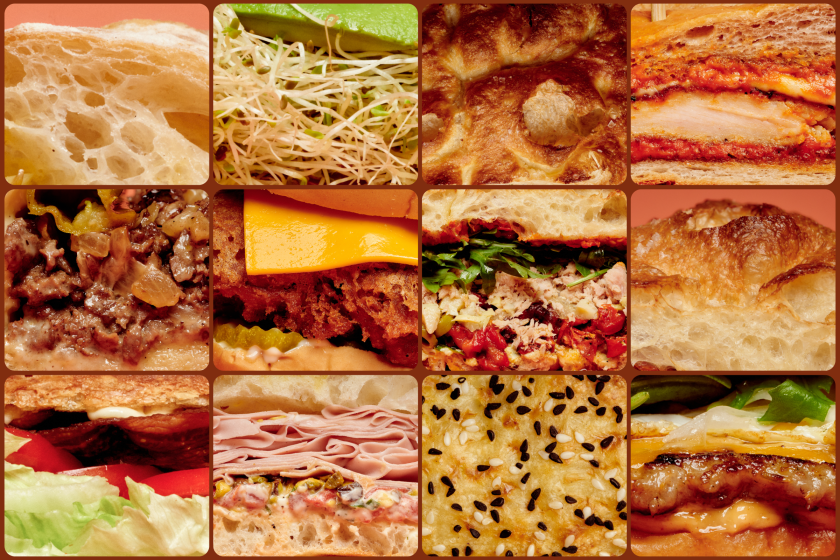Unhappiest hour: What the coronavirus shutdown has meant for two L.A. bars
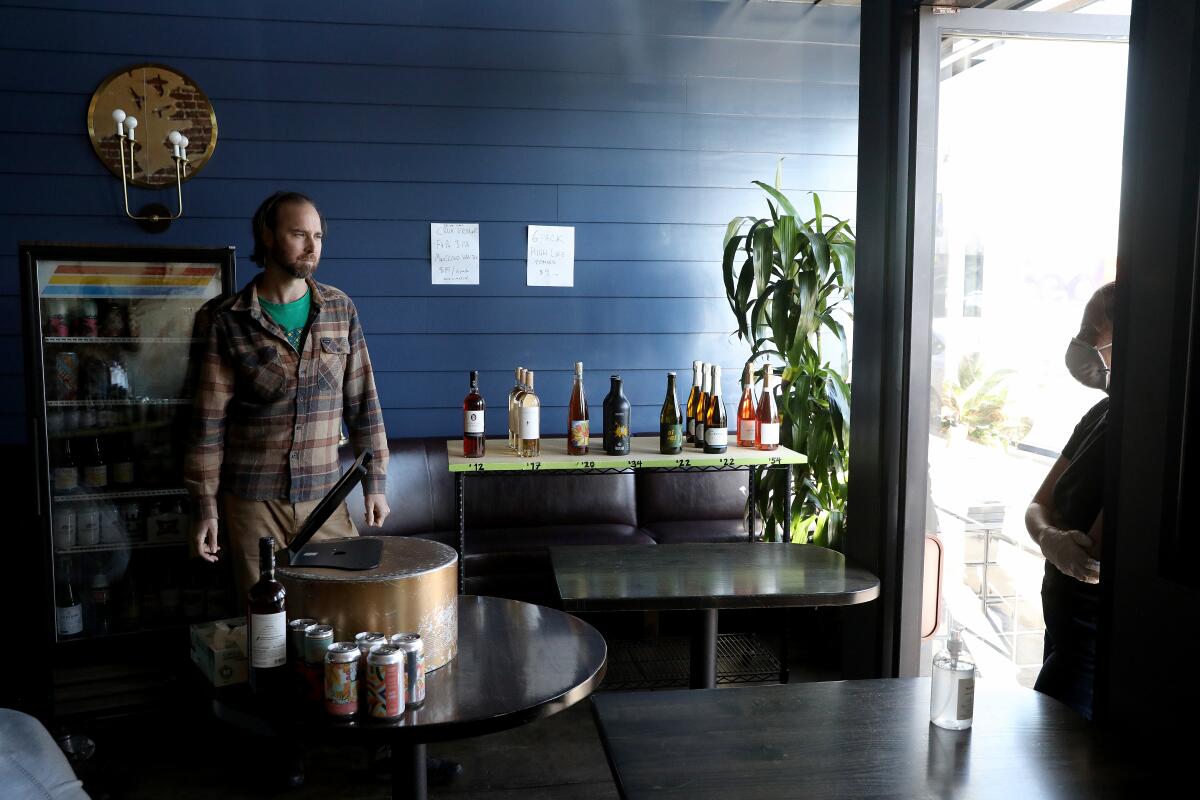
Zach Negin turned down the volume on the Hugh Masekela album he was playing at his Thai Town wine bar Tabula Rasa. “Last call,” he shouted. The bleak new meaning of the phrase bloomed suddenly.
It was March 15, the day that Mayor Eric Garcetti announced the bar and restaurant shutdown in Los Angeles. Negin didn’t know when he would be making the announcement again in the foreseeable future. “I surprised myself by choking up as the words came out,” he said later. Customers began leaving $50 and $100 tips.
Californians have been ordered to stay at home; restaurants have been restricted to takeout and delivery to help impede the spread of the novel coronavirus. Bars closed outright. The moratorium, originally set to end March 31, was extended last week to April 19.
This is calamitous for the thousands of people employed by drinking establishments of all kinds, and it’s another rift in our cultural ecosystem with consequences we can’t yet fathom.
Bars are fundamental third places in communities; we experience time differently in bars than we do in restaurants. We say we “linger” over good meals, but restaurants actually tend to run on strict schedules (implied, if not enforced). In bars, we hang out; we leave our tabs open. Bars are release valves, our waystations and dim confessionals. We shouldn’t leave our homes right now, but we will need these spaces to gather when it’s safe again.
Until then, bartenders, barbacks, sommeliers and bar owners are jobless.
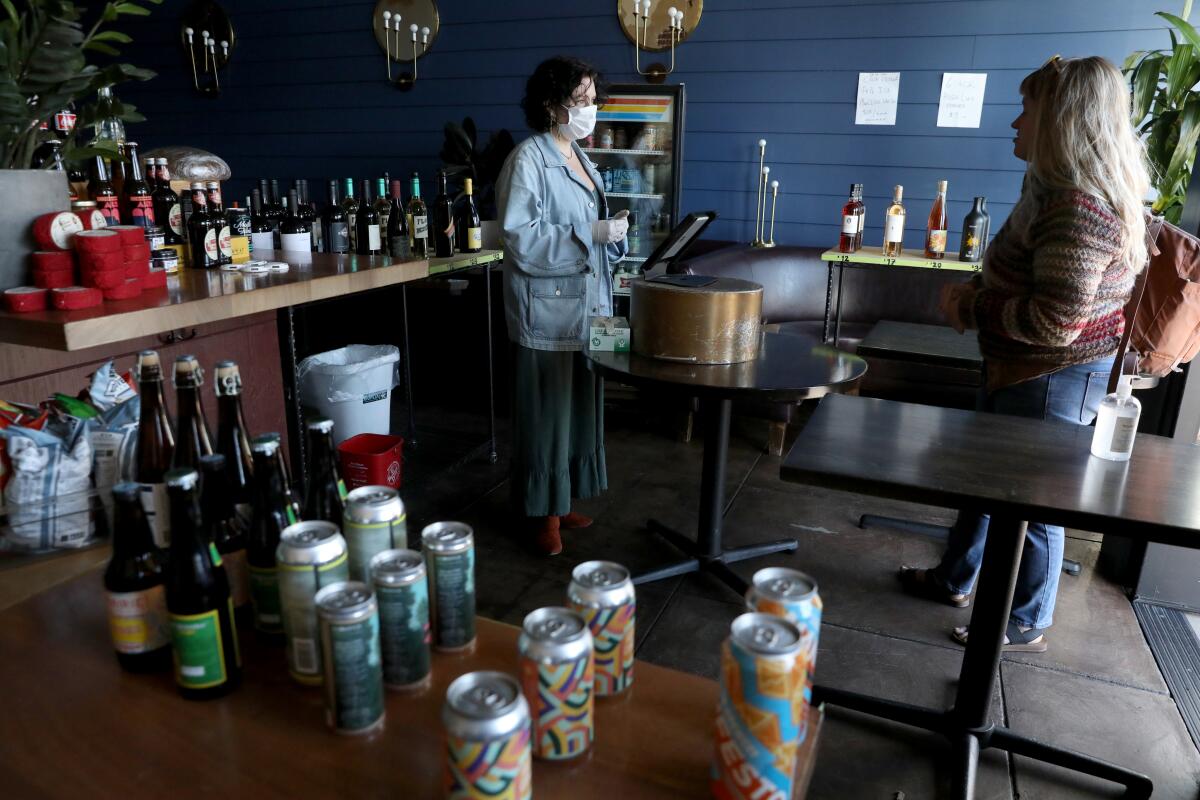
Tabula Rasa is near where I live; the loss feels personal. Same with Big Bar in Los Feliz. It’s a frequent predinner stop for one of manager Carrie Hah’s “#tigermom gimlets” with makrut lime and bergamot bitters. I remain unwilling to write that sentence in the past tense.
“Let’s just say I don’t see a month passing and everything will be fine,” Hah said by phone. “There will be a normal again, but it won’t be the old normal.”
“It’s like the bar industry was an Etch A Sketch and someone just picked it up and shook it,” said Banah Winn. He had worked as a bartender at Tabula Rasa for seven months. “I think all of us who work in bars have been living in a delicate place. The majority of us don’t have a lot of savings. [Things] just got very real.”
Bartenders told me they typically earn minimum wage ($13.25 an hour for businesses in Los Angeles County with 25 or fewer employees), gleaning the bulk of their living from tips. Most staff at Tabula Rasa and Big Bar work as actors, artists, writers and musicians whose most reliable source of income was mixing drinks.
Winn is a singer-songwriter who recently finished recording an album. “Bartending allows you time and freedom. It’s one of the few industries where you can make an honest living without having gone to college.”
Sean McBride poured drinks at Big Bar for 10 years while pursuing a career as an actor. “Both industries I work in have been shut down by the current crisis,” McBride said. “My wife still has her job at the moment, so I’m feeling less anxious than some of the other bartenders. Some don’t know how they’re going to pay the rent next month.”
Employees at Tabula Rasa and Big Bar describe a sequence of events that echo countless accounts in the hospitality industry: On March 15, their bosses told them they could no longer provide work for them. The next day, they came in to collect last paychecks and claim provisions (whatever perishable food and supplies the bars still had on hand) offered to them. They were encouraged to apply for unemployment benefits immediately and to request emergency assistance through the United States Bartenders’ Guild.
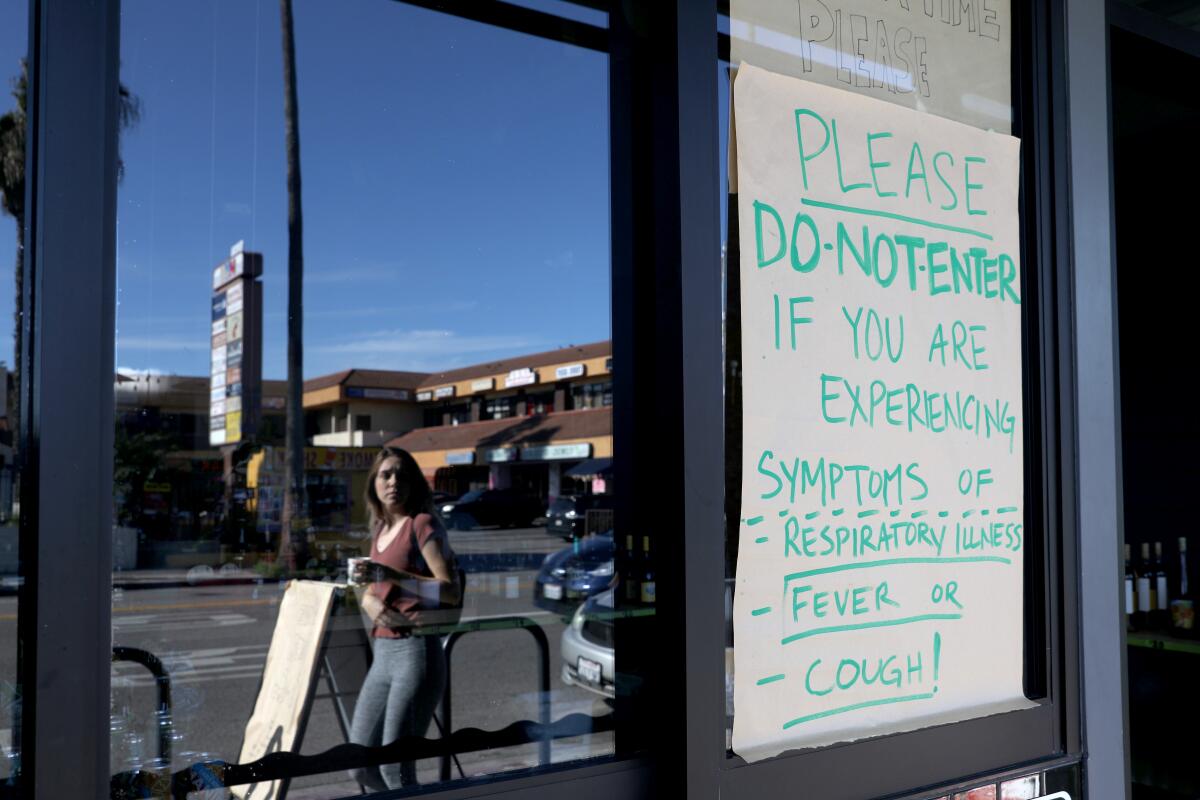
Immediately, supervisors also set up ways to support their now-jobless staffs: On Instagram, Negin asked followers to send tips for his bartenders through Venmo; he’s collected more than $5,000. Hah’s comanager at Big Bar, Eugene Lee, set up a $2,000 GoFundMe account that swiftly met its goal.
That helps stanch the bleeding, but then what?
“Unless you have something else in your back pocket, what else can you do?” Winn asked. “It’s not like, ‘I’ll go to school real quick and become a court reporter.’”
Negin — who also bought Silverlake Lounge, a dive bar institution, and opened it on March 12, three days before the shutdown — began offering alcohol takeout and delivery over the weekend, and has set up an online store via Shopify . “There’s clearly some ‘philanthropic’ buying going on with friends and neighbors saying, ‘Here’s $200. Choose some wine for me,’” he said. “We expect that to slow and shift into more reasonable habits, so we’re going to focus our retail on $12 to $20 wines and a nice selection of cool craft beers and sake.”
The sales create a nominal wage for Negin and the managers of his two establishments, with the hope that it might generate enough income to bring back other employees.
“We’re following suit with everyone else who’s essentially reinventing their business night after night to make it through.”
More to Read
Eat your way across L.A.
Get our weekly Tasting Notes newsletter for reviews, news and more.
You may occasionally receive promotional content from the Los Angeles Times.
